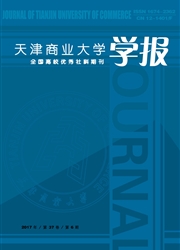

 中文摘要:
中文摘要:
以玉米作为研究切入点,运用1991—2013年我国玉米生产和储备的数据,使用 VAR 模型对我国玉米安全水平的变动与储备变动之间的关系进行实证分析。协整分析发现玉米安全水平变动与储备变动之间不存在稳定的长期均衡关系;格兰杰因果检验表明玉米安全水平变动与储备变动之间不存在短期因果关系;通过分析脉冲响应函数的动态反应路径,可以发现短期内玉米储备变动对自身具有冲击效应、玉米储备变动对安全水平变动具有冲击效应、玉米安全水平变动对自身具有冲击效应、玉米安全水平变动对储备变动具有冲击效应,但随着作用期数的增加,这些冲击效应逐渐减弱并无限趋近于零。脉冲响应分析对玉米安全水平变动与储备变动在短期内的相互作用进行了诠释,能够通过玉米安全水平变动与储备变动之间的脉冲响应路径来指导现实中的粮食安全保障工作。
 英文摘要:
英文摘要:
With maize as the research focus,the paper makes an empirical analysis of the relationship between the change of the security level and reserve of maize in China,using the data of China's maize production and reserve in 1991—2013 VAR model.Co-integration analysis indicates that there is no stable long-term equilibrium relationship between the changes in security level and reserve of maize.Granger causality tests show that there is no causality relation between the changes in security level and reserve of maize.From the analysis of the dy-namic reaction path of impulse response function,it can be found that in the short term,the change in maize reserve has impact on its own,the change in maize reserve has impact on the change in security level,and the change in the security level of maize has impact not only on its own but also on the change in reserve.Howev-er,with the increase of function periods,the impact is gradually weakened and infinitely close to zero.Im-pulse response analysis explains the interaction between the changes in security level and reserve of maize in the short term,guiding food security in reality via the impulse response path between the changes in the secur-ity level and reserve of maize.
 同期刊论文项目
同期刊论文项目
 同项目期刊论文
同项目期刊论文
 期刊信息
期刊信息
